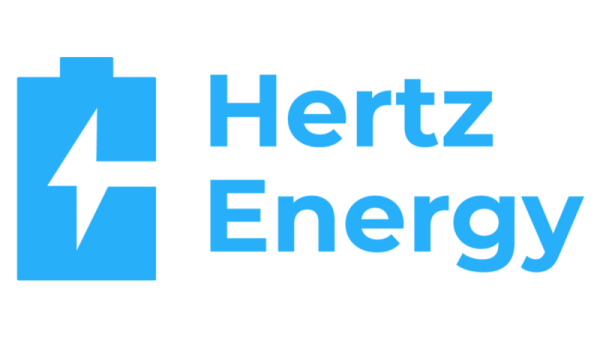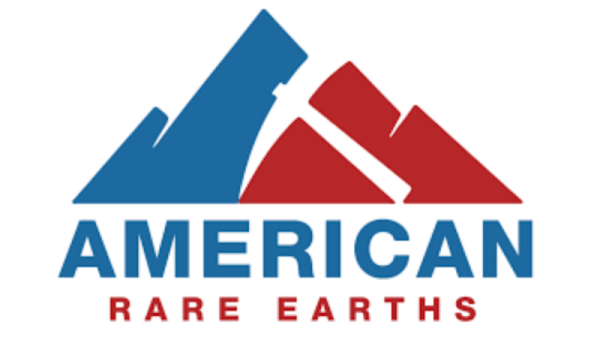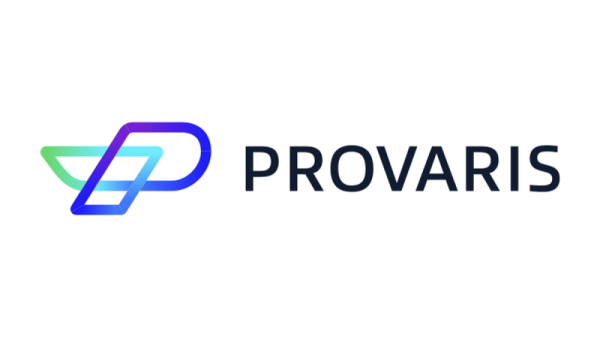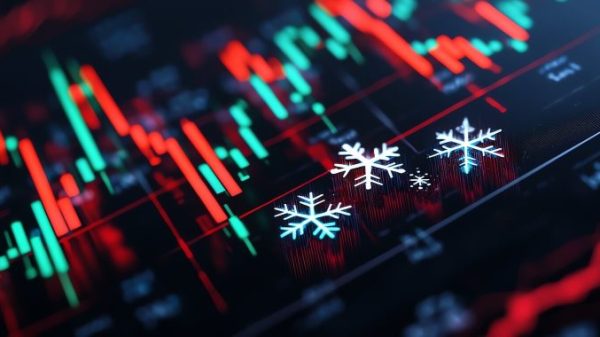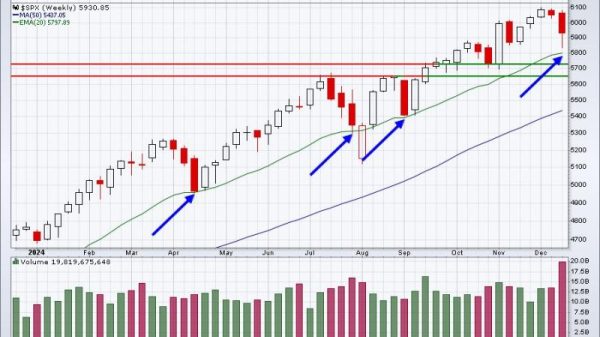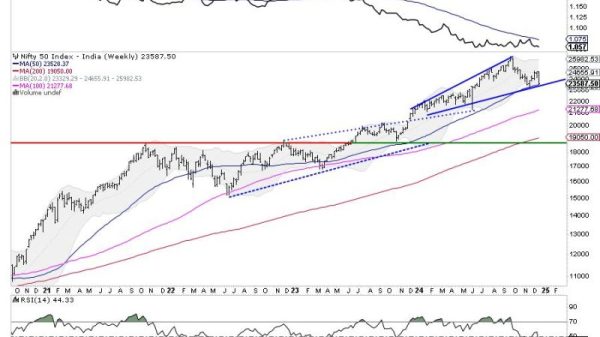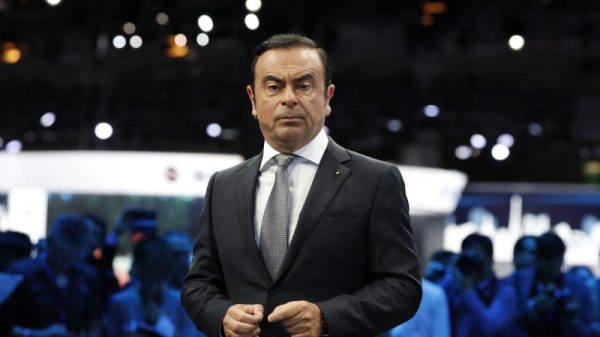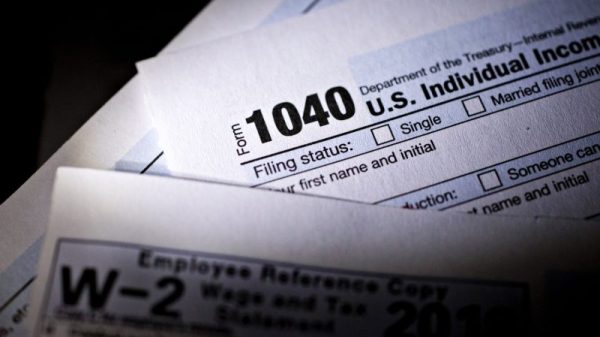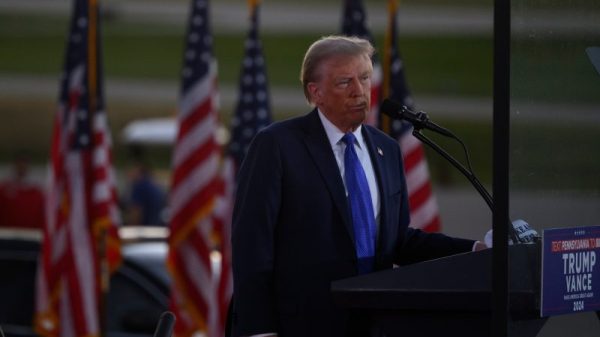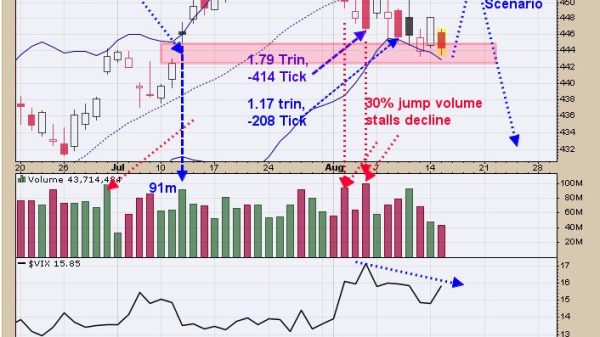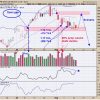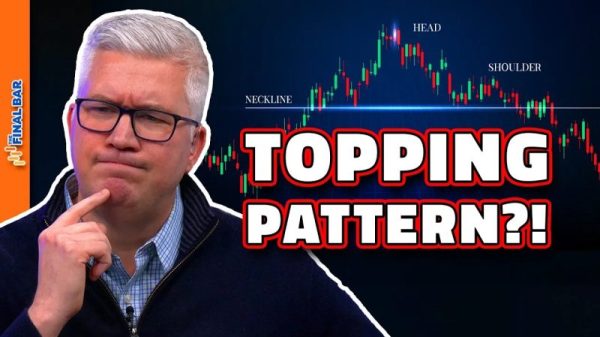Geopolitical tensions are rising in several regions of the world and governments are expected to increase their defense spending in the years ahead.
The entrenched Russian-Ukraine war, the eruption of the Israel-Hamas war, military posturing in the ongoing US-China trade conflict and the spread of cyber security attacks on critical infrastructure — all of these developments and more are driving demand in the global defense market.
Global defense spending is projected to reach US$2 trillion by 2026, led by the United States, China, India and Russia. For the most part, the aerospace and defense industry provides equipment, technologies and services to national governments through contracts. The players in this space are typically defense contractors that design and manufacture aircraft, satellites, electronic systems, software, missiles, drones, autonomous vehicles, tanks and marine vessels.
Increasingly, cybersecurity products and services are gaining prominence in the defense industry. The cybersecurity subsector of this market is forecasted to grow from US$13.97 billion in 2022 to US$48.78 billion by 2032.
US Defense Stocks
The US defense industry has experienced steady growth since 1965. Today, the US accounts for the largest share of global defense spending, representing about 40 percent of worldwide military outlays, reports Statista. In fact, after social security, military spending is the second-largest allocation in the US federal budget, according to Mordor Intelligence. Worsening geopolitical tensions are expected to increase the US government’s spending on defense technology.
1. Honeywell International (NASDAQ:HON)
Market cap: US$118.25 billion; share price: US$178.09
Engineering and technology company Honeywell International develops and manufactures technological solutions for a variety of sectors. The company’s four business divisions are: aerospace, building technologies, performance materials and technologies, and safety and productivity solutions. Revenues for the company came in at more than US$35 billion in 2022, up 3.12 percent from the previous year.
Honeywell has numerous defense contracts with government agencies around the world, including right at home with the US Department of Defense (DoD) and US Armed Forces. This includes contracts to provide military-grade technologies and services through the government’s Advanced Technology Support Program IV based on the requirements of the DoD.
2. RTX Corporation (NYSE:RTX)
Market cap: US$114.13 billion; share price: US$78.41
One of the most well known defense contractors, RTX Corporation (formerly Raytheon), is a leader in defense, aviation, space, electronics and cybersecurity. The company captured more than US$67 billion in revenue for 2022, up 1.61 percent from the previous year.
Most recently, the US Naval Sea Systems Command awarded RTX a US$74.8 million contract to provide engineering and technical support for its Standard Missile 2 and Standard Missile 6 products. ‘The increasing geopolitical tensions worldwide have prompted nations to strengthen their defense systems manifold,’ according to Zacks Equity Research. ‘With rapid technological upgrades, missile defense has steadily become pivotal in a nation’s defense strategy.’
3. Lockheed Martin (NYSE:LMT)
Market cap: US$111.08 billion; share price: US$78.02
Lockheed Martin’s business is concentrated on aerospace products and advanced defense technology systems. The F-15 Fighting Falcon fighter jet is among its most notable products, but Lockheed is also well known for its space launchers, ballistic missiles and satellites. The company’s 2022 revenues declined by 1.58 percent from the previous year to just under US$66 billion.
Unsurprisingly, about half of Lockheed Martin’s annual sales are made to the US DoD. In April of this year, the company said it expected to strike a deal with thePentagon for a US$7.8 billion performance-based logistics contract for its F-35 fighter jets before the end of 2023. Under that form of contract, Lockheed would be paid based on outcome instead of quantity. However, as of September, the deal is on shaky grounds, and won’t take place until 2024 if it does at all.
4. Boeing (NYSE:BA)
Market cap: US$107.27 billion; share price: US$117.84
Another heavy weight in the aerospace and defense industry, Boeing designs and manufactures airplanes, rotorcraft, rockets, satellites, telecommunications equipment and missiles. Revenues for the company jumped by 6.94 percent in 2022 over the previous year to come in at US$66.6 billion.
In April 2023, Boeing brought its Protected Wideband Satellite design to market, which features the company’s Protected Tactical SATCOM Prototype payload hosted aboard the US Space Force’s Wideband Global SATCOM-11 spacecraft. The technology boasts automated anti-jam capabilities to enhance battlefield communications.
5. Northrop Grumman (NYSE:NOC)
Market cap: US$72.29 billion; share price: US$483.27
Northrop Grumman runs the full gambit of military technology, including segments focused on aviation, missile systems and navigation as well as highly advanced research, development and production of autonomous systems, cyber technology, laser technology and space development. The company played a key role in the development of the James Webb Space Telescope.
Between its aerospace systems, innovation systems, mission systems and technology service segments, Northrop Grumman posted an annual revenue of US$36.6 billion in 2022, up 2.62 percent compared to 2021.
Canadian Defense Stocks
Canada’s defense industry is dominated by the aerospace sector, with export activities the main drivers of revenue in this sector. This sector has historically outperformed the broader manufacturing sector in terms of industrial growth, according to a Government of Canada report. Exports also represent a significant portion of revenues for land and marine military goods and services. Canada’s largest defense export markets include Israel, the UK, Germany, France and Australia.
GlobalData reports that naval vessels and surface combatants, military fixed-wing aircrafts and military satellites are currently the most attractive segments of the country’s defense market.
1. CAE (TSX:CAE)
Market cap: C$9.26 billion; share price: C$28.53
Established in 1947, CAE manufactures simulation technologies, modeling technologies and digitally immersive training services for the healthcare, aerospace and defense industries. The company’s defense and security business unit provides training and mission support solutions for air, land, maritime, space and cybersecurity operations.
The company has regional defense and security training facilities in the US, Canada, United Kingdom and Europe, Indo-Pacific and the Middle East. CAE’s annual revenue for the 12 months ending June 30, 2023 was C$3.23 billion, up 15.16 percent year-over-year.
2. Bombardier (TSX:BBD.B)
Market cap: C$4.1 billion; share price: C$40.88
A global leader in aviation, Bombardier is headquartered in Québec and operates aerostructure, assembly and completion facilities in Canada, the US and Mexico. Although best known for its business jets, the company has also earned the distinction of being a trusted designer and manufacturer of military special-mission aircraft under its Bombardier Defense unit.
Bombardier Defense has a multi-year US$465 million contract with the US Air Force under the Battlefield Airborne Communications Node program. As of October 2023, the company has delivered seven Global 6000 aircrafts to the US Air Force. These aircrafts are specialized communications platforms that help bridge voice and data between forces on the ground and in the air. Under the contract, the Air Force has the option to purchase an additional aircraft each year through 2026. Bombardier reported US$6.9 billion in revenues for 2022, an increase of 14 percent year-over-year.
3. MDA (TSX:MDA)
Market cap: C$1.37 billion; share price: C$11.45
MDA calls itself “an international space mission partner and a robotics, satellite systems and geointelligence pioneer.” The company is responsible for Canada’s first military satellite, Sapphire, which is designed to monitor Earth’s orbit and surveil outer space for man-made space debris and other satellites. Classified as a Space Situational Awareness small-satellite system, Sapphire was created for Canada’s Department of National Defence.
MDA also provides satellite capabilities to the Department of National Defence’s Polar Epsilon satellite ground stations, collecting mission critical data for military commanders. MDA reported strong top-line growth in 2022, with revenues of C$641.2 million, up 34 percent year-over-year. The company expects full year revenues to be between C$785 million and C$810 million in 2023, representing robust year-over-year growth of about 25 percent at the mid-point of guidance.
4. Heroux-Devtek (TSX:HRX)
Market cap: C$520.29 million; share price: C$15.15
Héroux-Devtek is a leading international manufacturer of aerospace products and the world’s third-largest landing gear manufacturer. The company is known worldwide for its advanced capabilities in producing complete landing gear systems and components to precise specifications, as well as servicing landing gear systems and components for a wide range of military and civil aircraft.
This has landed Héroux-Devtek strategic partnerships with commercial and military aircraft manufacturers. The company recently reported that its defense sales for the first quarter of its fiscal year 2024 were up 15.1 percent at C$90.5 million “due to the alignment of operations to better deliver while facing the challenges of the current environment as well as the ramp-up of deliveries for the Sikorsky CH-53K.”
5. Magellan Aerospace (TSX:MAL)
Market cap: C$426.76 million; share price: C$7.31
Magellan Aerospace designs, manufacturers and services engine and structure assemblies and components for the aerospace market, including proprietary products for the military and space submarkets.
This year, the company has entered into two important contracts. The first is a long-term agreement extension with RTX subsidiary Collins Aerospace “to manufacture complex magnesium and aluminum castings for various military and commercial aerospace platforms.” This includes castings for F-15, F-16, F-18 and F-35 Lightning II military aircraft. The second is a C$15.8 million contract with Canada’s Department of National Defence to design, build, launch and operate the Redwing microsatellite. According to the release, the microsatellite ‘represents the next generation of spacecraft technology for space domain awareness technology demonstration.’
Australian Defense Stocks
Australia’s defense spending contributed AU$10.6 billion to the country’s economy for the 2021/2022 period, up 20.2 percent from 2020/2021. Moving forward, the Australian government is committed to investing AU$3.4 billion over 10 years in defense innovation in order to upgrade the nation’s defense capabilities.
The country also has a strong defense technologies export market with its international and regional allies, including the United States, Israel, Ukraine, the European Union, the United Arab Emirates and Japan.
1. Austal (ASX:ASB)
Market cap: AU$612.06 million; share price: AU$1.66
Austal is a global shipbuilder, maritime technology provider and defense contractor. The company designs and manufactures frigate-sized, multi-mission surface combatants; high-speed military transport vessels; and patrol boats.
In its FY2023 annual report, the company highlighted contracts for 11 new ships and a total of nine ships delivered in Australia, the US, Philippines and Vietnam. In May, Austal was awarded a US Navy contract valued at up to US$3.2 billion for up to seven T-AGOS surveillance ships, and in September, a US$91.5 million US Navy contract for the construction of three Landing Craft Utility 1700 class crafts.
2. DroneShield (ASX:DRO)
Market cap: AU$168.14 million; share price: AU$0.26
DroneShield is a provider of AI-based defense solutions, specializing in counter-unmanned aerial systems (C-AUS) for army, navy and air force personnel. Unmanned drones are increasingly being used in military conflicts.
This year, the company has been awarded several significant contracts, such as a AU$9.9 million Five Eyes Department of Defence research and development contract and a record AU$33 million contract from a US government agency for DroneShield equipment and multi-year services. In October 2023, DroneShield announced it had received multiple orders totalling AU$10.4 million from the Australian government as part of a AU$20 million military assistance package to Ukraine.
3. Electro Optic Systems (ASX:EOS)
Market cap: AU$157.54 million; share price: AU$0.94
Electro Optic Systems (EOS) has designed, manufactured and exported high precision weapon systems for nearly 40 years. The company’s product portfolio consists of remote weapon systems, turrets, high energy laser weapons, counter-drone systems, space intelligence and space control products and services, and satellite communication terminals.
In August, EOS announced it had filled an order for three of its Slinger light-weight 30mm cannon systems as part of a US Department of Defense security assistance package to Ukraine. For use on 30mm gun trucks, the Slinger system is designed to track and engage with drones at a range of more than 800 meters.
“The Slingers have been contracted by Northrop Grumman, we received a purchase order for three systems, and there’ll be more to follow after the first three,” stated EOS Defence Systems Executive Vice President Matthew Jones.
4. Bisalloy Steel Group (ASX:BIS)
Market cap: AU$112.06 million; share price: AU$2.28
Bisalloy Steel Group is Australia’s only manufacturer of high-strength steel plating used for armor, structural and wear-resistant steel applications. The company’s Bisalloy Armour military-grade steel is used by defense forces around the world for armored personnel carriers and light armored vehicles, as well as for Bushmaster infantry mobility vehicles in Australia.
In May 2023, the Australian federal government awarded a AU$160 million contract to defense manufacturer Thales Australia to build 78 new Bushmasters for the Australian army. Bisalloy Steel Group recently reported its HY 2023 revenues came in at more than AU$78.42 million, up 42.1 percent for the same period in 2022.
5. XTEK (ASX:XTE)
Market cap: AU$49.35 billion; share price: AU$0.47
XTEK operates two business divisions. The ballistics division centers on the company’s HighCom Armor brand, and is focused on designing, manufacturing and supplying militaries, law enforcement and first responders with advanced personal protection ballistic products. These include items such as body armor, ballistic helmets and composite armor structures. The technology division is focused on manufacturing and supplying global defense and security agencies with unmanned ground and aerial vehicle systems, sensors, software and support.
In mid-2023, XTEK’s technology division announced it had reached a major delivery milestone with the near completion of a AU$26.9 million order for small unmanned aerial vehicle systems. In October, ZTEK secured a new multi-year small unmanned aerial vehicle systems contract with the Australian Department of Defence that has a potential value of up to AU$110 million over 10 years if each extension is agreed to.
Securities Disclosure: I, Melissa Pistilli, hold no direct investment interest in any company mentioned in this article.

